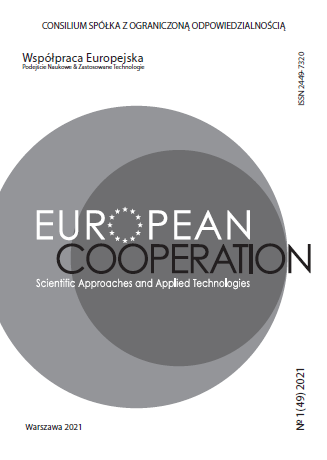РАЗВИТИЕ РЫНКА КРИПТОВАЛЮТ В ЛАТВИИ И СТРАНАХ БАЛТИИ
CRYPTOCURRENCY MARKET DEVELOPMENT IN LATVIA AND THE BALTIC STATES
Author(s): Alexander Masharsky, Ivan SkvortsovSubject(s): Business Economy / Management, Economic policy, Government/Political systems, Economic development, Financial Markets, ICT Information and Communications Technologies
Published by: Consilium Sp. z o.o.
Keywords: cryptocurrency; blockchain; electronic money; government regulation; money laundering; investments;
Summary/Abstract: The use of digital money creates not only threats, but also opportunities for economic development, but in Latvia and the Baltic countries, they are not sufficiently researched and not widely spread. The paper aims to identify the reasons for the lagging behind of the Baltic countries and Latvia in the development of the cryptocurrency market and to develop recommendations for improving its regulation and functioning. Based on the methods of cross-country, statistical and sociological analysis, the national factors of differences in the functioning and regulation of cryptocurrencies in Latvia, Estonia, and Lithuania have been identified and the risks of its use for illegal activities have been assessed. It is shown that the role of cryptocurrencies in the financial markets of the Baltic States is determined by the degree of their use for payments and investments, which depends on their recognition by the state and investors. It has been revealed that the definition of the concept of cryptocurrency in the EU and the Baltic countries, primarily in the money laundering and terrorist financing (ML/TF) directives, does not stimulate the use of its positive features. A correlation between the restrained attitude towards cryptocurrencies in Latvia and its large-scale business relations with the CIS countries with a higher proportion of shadow economy, caused by the peculiarities of its history and geographical location, has been revealed. The Latvian banking system, under the influence of international regulators, has become less appropriate for operations of non-residents from the East, which increases the risk of using cryptocurrency for ML/FT purposes. The factors of motivation, advantages and difficulties of the businessmen of the Baltic countries they face when dealing with cryptocurrency have been identified, and a discrepancy in the regulation of taxation of transactions with cryptocurrency and the respective activities in Latvia has been revealed. Recommendations are given to the state and private investors pertaining to the integration of cryptocurrencies into the economic space, the implementation of which will contribute to the development of the digital economy and growth of wealth of Latvian residents. The results of the study can be used to improve government regulation and private investments in the cryptocurrency market, as well as in the study and further research of this problem.
Journal: Współpraca Europejska
- Issue Year: 1/2021
- Issue No: 49
- Page Range: 7-22
- Page Count: 16
- Language: Russian

